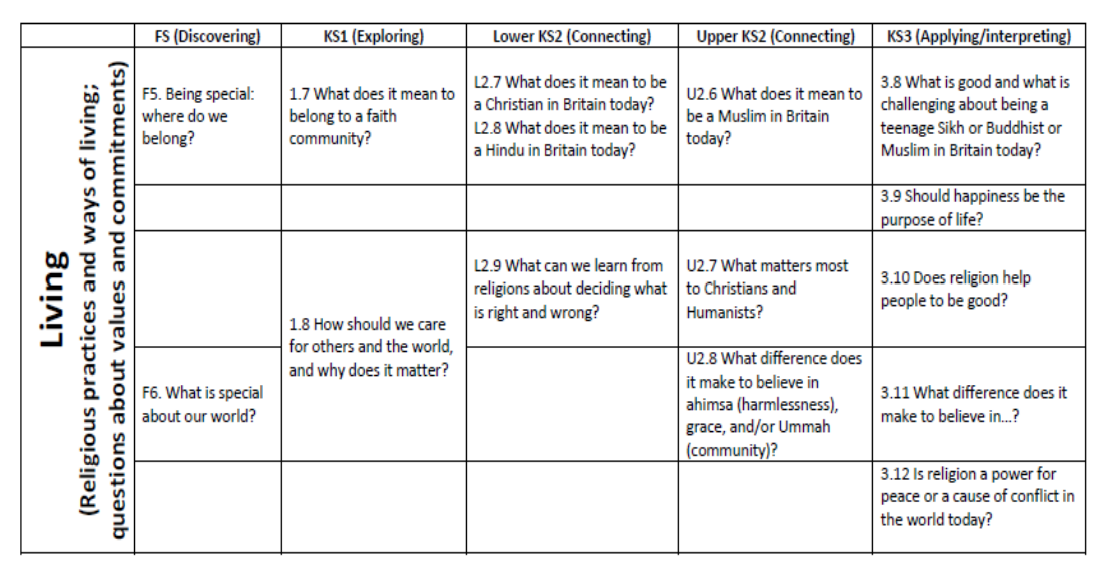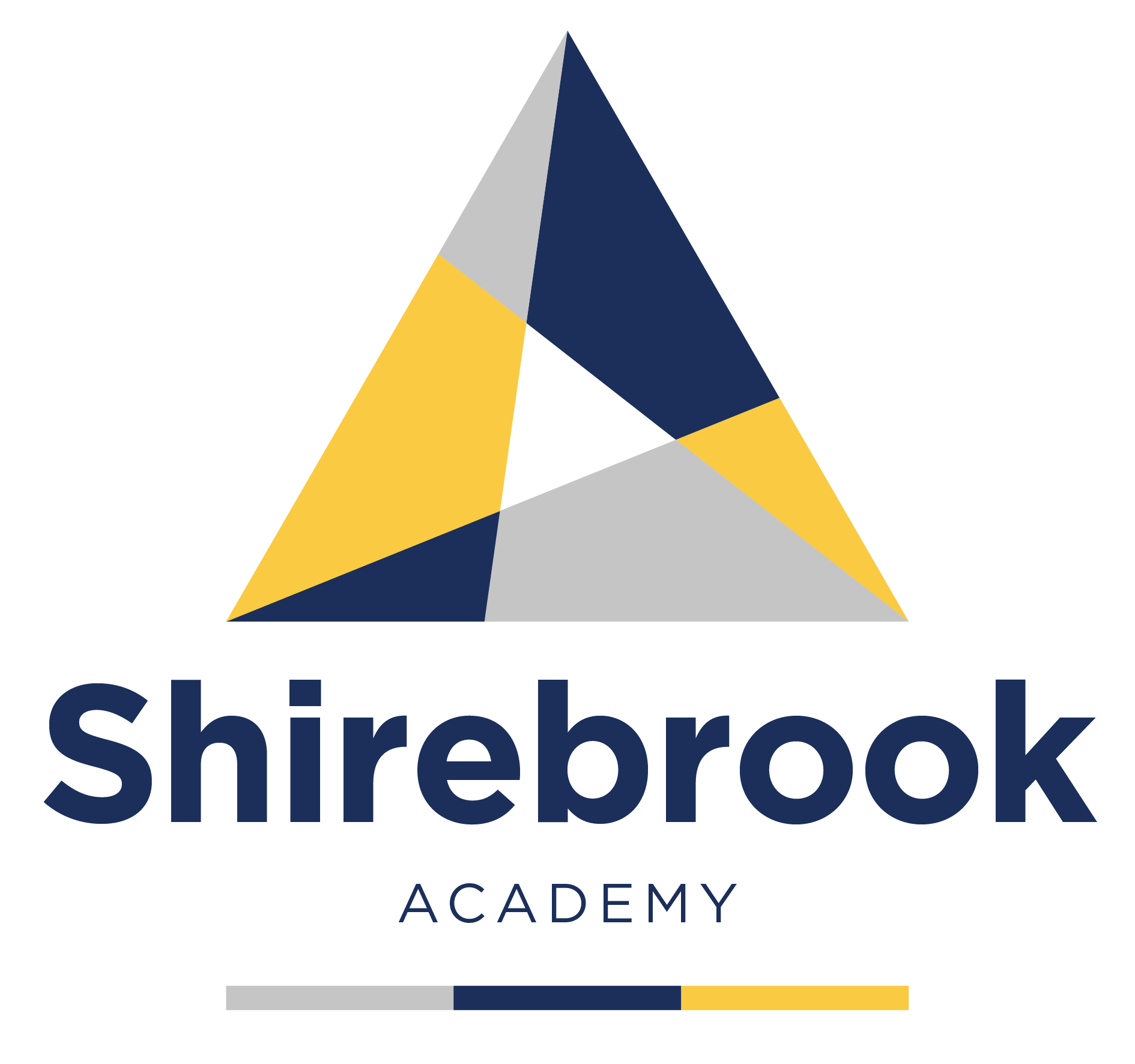Humanities
Curriculum Statement of Intent – Humanities
Geography
At Shirebrook Academy, as per the KS3 curriculum aims, students receive the first-class geography education that inspires in them a curiosity and fascination about the world and its people, that will remain with them for the rest of their lives.
Our Geography curriculum develops responsible informed global citizens who are knowledgeable about people, places, resources, natural and human environments and who have a detailed understanding about the interactions between these concepts. Indeed, as Barack Obama once stated, “the study of geography is about more than just memorizing places on a map. It's about understanding the complexity of our world, appreciating the diversity of cultures that exists across continents. And in the end, it's about using all that knowledge to help bridge divides and bring people together”.
In Y8 and Y9, we take an interleaved approach, studying a range of human and physical geography topics alongside key geographical skills such as ordnance survey maps and grid references. In Y8, students will learn about physical Geography of the UK through a study of rivers, physical world Geography of tectonics, ecosystems and biomes, as well as human Geography that assesses economic change in the UK.
A depth study of our threatened planet, assesses the skills, knowledge and understanding of the whole of Y8 at the year’s end. In Y9, students will learn about physical Geography of the UK through a study of coasts, physical world Geography of climate change and tropical rainforests, as well as how humans use resources and globalisation and development. A depth study of China as a global superpower, assesses the skills, knowledge and understanding of the whole of Y9 at the year’s end.
At KS4, we follow the AQA specification, studying four main units; Living with the physical environment, Challenges in the human environment, Geographical applications and Geographical skills. Within these units, students will learn about a range of Geographical issues such as natural hazards, tectonic hazards, weather hazards and climate change, landscapes in the UK, urban issues and challenges, the changing economic world and resources.
History
The History Curriculum at Shirebrook Academy aims to inspire a generation of young people who are curious and passionate about the past, and develops their ability to become active citizens in the future. Our curriculum will help students to make sense of the rapidly changing world around them, and to understand the foundations upon which their own lives and the lives of their ancestors were built.
In addition to teaching students a broad, challenging and exciting range of historical topics, our curriculum will also equip our young historians with the necessary skills to form their own enquiries and to fully develop their ability to investigate the past. We have worked hard to develop a spiral curriculum which revisits each of the fundamental historical skills as students progress through KS3 and KS4. This means skills are revisited, built upon and consolidated to create proficient historians who can master all of our curriculum goals and succeed in history beyond their time at Shirebrook Academy.
Good historians form their own enquiries, and are not afraid challenge the perceptions of others, and as a result our curriculum is enquiry-led. Each unit of study is broken down into a number of thought-provoking, incisive enquiry questions that encourage students to develop their own evidence based interpretations of the past.
A fundamental and crucial aim of the Shirebrook Academy History curriculum is to challenge and reexamine traditional narratives, and to give students the opportunity to learn about the histories of people beyond Britain and the western world. We want our students to critically evaluate the eurocentric view of history, and to explore the history of the wider world. It is our firm belief that history is a tool to promote equality, democracy, social justice, tolerance and to celebrate the rich and diverse tapestry of our shared history.
In the first half of Y7, students will undertake a broad and engaging study of British History from the Iron Age to the Middle Ages (c100BC-c1500AD). We will discover the seminal events that shattered and shaped these islands, and examine the countless cultural influences that have been left behind by the settlers and invaders who came here. Students will gain an understanding of medieval life, and understand the opportunities and challenges faced by those who experienced it. In the second half of Y7, we broaden our scope and examine the monumental moments and civilisations that defined the wider medieval world beyond the shores of Britain.
In Y8, students will pick up where they left off in terms of chronology and begin their study of Early Modern England (c1500-c1700). Students will use all of the skills they developed in Y7 to start dissecting this turbulent and gruesome period of history, and to discover why Britain found itself being torn apart by religious and political turmoil. They will also study the seismic changes brought about during the Industrial Revolution (1750-1900), many of which happened in the towns and coal fields that surround their classroom and are still evident today. In addition to these enquiries, students will examine the controversial legacy of the British Empire. Through studies of America, Africa and India students will form their own interpretations of the empire; establishing a firm foundation for their study of 20th century History in Y9. Y9 History focusses solely on the 20th century – the period that arguably shaped our modern world more than any other. Students will build on 2 years of study to analyse the state of the world at the turn of the century, and the events and ideologies that triggered a series of events culminating two global conflicts, nuclear war and a ‘cold war’ which still shapes international politics today. Students will also learn about the social movements that shaped this great century, such as the campaigns for women’s suffrage, the civil rights movement and the development of a National Health Service. Ultimately, students will finish their three-year chronological journey at the end of Y9 by examining the parallels between today’s society and the many historical worlds they have will have travelled through in their study of the past since the start of Y7. By this point, students will have secured their understanding of the past, and the skills necessary to evaluate it.
At KS4, we follow the Edexcel (9-1) specification. This involves the study of Anglo-Saxon and Norman England (1060-87), Crime and Punishment through Time (1000-Present), The American West (1835- 1895) and Weimar & Nazi Germany (1918-39). These units offer a combination of breadth and depth studies. As of September 2023, we have taken the exciting decision to replace the Crime & Punishment element with a study of ‘Migration to Britain’. This is in line with our commitment to providing students with a diverse study of History, and the greatest possible understanding of the world around them.
Philosophy and Ethics
At Shirebrook Academy, we offer statutory Religious Education within our Philosophy and Ethics curriculum that creates opportunities for our students to develop knowledge and understanding of the diverse way that people behave in the world. As part of this, we have produced an interwoven curriculum of philosophical beliefs and practices, and high-level ethical, moral and spiritual debates.
This curriculum complies fully with the agreed Derbyshire and Derby end of key stage outcomes for RE1 . This provides students with the opportunities to investigate different religious practices, a knowledge of from where religious beliefs originate, and how these beliefs influence people and impact on our world. As philosophers, we are giving students the opportunities to compare different answers to the big questions in life. Philosophy and Ethics is also a critical component of the spiritual, moral, social and cultural development of our students, and the subject allows students to nurture personal relationships, value different opinions, investigate controversial issues, and most importantly of all, respect and tolerate difference; indeed, “tolerance is giving to every other human being every right that you claim for yourself” (Robert Green Ingersoll).
Philosophy and Ethics is an underpinning facet of the curriculum intent of Shirebrook Academy2. It prepares students for life beyond age 16 by fostering the key character traits3 of courage to discuss difficult subjects, honesty to be able to share opinions in a safe space, integrity to respect the views of others that are different, compassion to show empathy to those less fortunate than ourselves and the importance of kindness to those who have experienced hate due to their religious beliefs.
Philosophy and Ethics helps to support physical and mental health in the teaching of views on contraception, challenges them to be ambitious for themselves and their community by exploring the diversity of the religious world around us. Whilst high quality exam outcomes are a core principle of our curriculum, Philosophy and Ethics categorically broadens the minds of our young people beyond outcomes, promoting diversity through strong links with Shirebrook Church, the Derby Open Centre and Chesterfield Muslim Welfare Association. Philosophy and Ethics fortifies the equality of opportunities available to our students, ensuring that no disadvantage is a barrier to learning here, nor it should it be across society. Philosophy and Ethics also plays a crucial part in the delivery of statutory personal development provision linked to SMSC.
When implementing our curriculum, we always ensure that students develop self-esteem and self-confidence through a greater understanding of philosophical and ethical debates, feeling the safety to express opinions on what is right and wrong, for example, when studying the aims of criminal law and punishment in GCSE Religious Studies. Most importantly, by studying the views of atheists, humanists, as well as the religions of Christianity, Islam, Hinduism, Buddhism, Sikhism and Judaism at various stages of our curriculum, we are enabling students to further their own tolerance to different cultural traditions, by developing respect and appreciation for the cultures of the UK and the wider world.
In Y8 and Y9, we take an interleaved approach. In Y8, students will reflect and retrieve upon the study of religions in Y7, considering what it is like to be a religious teenager in the UK today for Christians, Sikhs and Muslims. A depth study of Christianity is interspersed with core ethical debates around whether some lives are worth more than others and the core ethics of life and death. Y8 concludes with a summative unit on whether or not religion helps people to be good. In Y9, we continued an interleaved approach, studying Judaism, Islam and Sikhism in depth, alongside ethical debates on whether or not some people are born evil and if war is ever justified.
At KS4, we follow the AQA GCSE Religious Studies A specification, studying Christianity and Islam, alongside the themes of Religion and Life, Religion, Peace and Conflict, Religion, Crime and Punishment, and Relationships and Families.
Appendix




